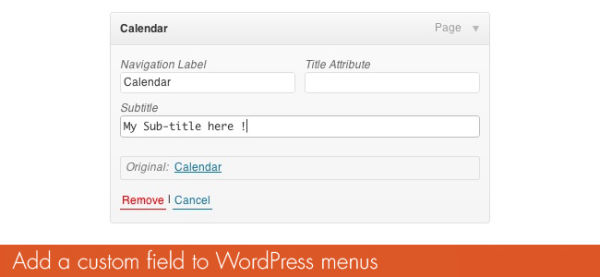Are you curious about how search engines work? Have you ever wondered how Google knows what to show you when you type in a query? Search engines are an integral part of our daily lives, but most people don't understand the science behind them. In this blog post, we'll take a deep dive into the world of search engines and explore the history of Google. We'll also uncover the secrets behind how search engines work, and provide tips on how to use them to your advantage. Get ready to unlock the mysteries behind "Google mera naam kya hai?"
What is a search engine?
A search engine is a tool that allows users to find information on the internet. Search engines use complex algorithms to analyze and organize vast amounts of data, making it easier for users to find what they are looking for.
When you enter a query into a search engine like “Google mera naam kya hai”, it scours its index of billions of pages and returns results that are relevant to your search terms. The order in which these results appear depends on several factors such as keyword relevance, page authority, and user behavior.
Search engines like Google have revolutionized the way we access information online. They allow us to quickly find answers to our questions without having to sift through irrelevant or low-quality content.
However, with so much information available at our fingertips, it can be difficult to determine the accuracy and reliability of certain sources. It's important for users to critically evaluate the content they come across and verify its credibility before accepting it as truth.
Search engines have made finding information online faster and more convenient than ever before. But as with any technology, there are also potential drawbacks that need careful consideration.
How do search engines work?
Search engines work by constantly crawling and indexing billions of web pages on the internet. When you enter a search query, the search engine uses complex algorithms to retrieve relevant results based on your keywords and other factors such as location, language, device type, and more.
The process begins with the search engine's crawler bots visiting websites and gathering data about their content. This information is then stored in an index that allows the search engine to quickly retrieve relevant results when someone enters a query.
When you enter a search term into Google or another search engine, it analyzes your query against its index to find matching results. The algorithm takes into account hundreds of ranking factors like keyword relevance, page quality, domain authority, backlinks and much more before determining which pages are most likely to answer your question or provide the information you're looking for.
Therefore, optimizing your website for SEO involves understanding these ranking factors and creating high-quality content that satisfies user intent while also following best practices for technical SEO like site speed optimization and mobile responsiveness.
The history of Google
Google's history dates back to 1996 when Larry Page and Sergey Brin, two Ph.
D. students at Stanford University, started working on a search engine project called Backrub. The idea was to create a more efficient way of ranking web pages by analyzing the number and quality of links pointing to them.
In 1997, the company was renamed Google as a play on the word "googol," a mathematical term for the number represented by one followed by 100 zeros. This name reflected their mission to organize an infinite amount of information available on the internet.
The first version of Google's search engine went live in September 1998 with just ten employees operating out of a garage in Menlo Park, California. The simplicity and accuracy of its results quickly gained popularity with users worldwide.
Over time, Google introduced new features such as AdWords advertising program and Gmail email service that added value to their core search business. In August 2004, they became a publicly traded company valued at $23 billion.
Today, Google is not only known for its search engine but also for developing innovative technologies like self-driving cars and smart home devices through its parent company Alphabet Inc.
What is the science behind search engines?
When we type a query into a search engine, we expect it to return relevant results about “Google mera naam kya hai”. But how exactly does the search engine know which pages are the most useful? That's where the science behind search engines comes in.
Search engines like Google use complex algorithms to determine which web pages should be at the top of your search results. These algorithms take into account numerous factors, such as relevance, authority and user behavior.
One important factor is relevance. Search engines analyze the content on a webpage to see if it matches what you're searching for. They look for specific keywords and phrases that match your query and rank those pages higher.
Another key factor is authority. Search engines consider how many other websites link back to a particular page – essentially saying that this page has valuable information worth sharing with others.
User behavior also plays an important role in determining rankings. If users frequently click on and engage with certain pages within their search results, then those pages will likely rise up in future searches related to similar queries.
Understanding the science behind search engines can help us better understand why certain web pages appear at the top of our searches while others get buried deep down in our results pages. By optimizing our own content for these various factors (relevance, authority and engagement),we can improve our chances of appearing towards the top of relevant searches ourselves!
How can you use search engines to your advantage?
Search engines have become an integral part of our daily lives. It is not just a tool for finding information, but it can also be used to your advantage in several ways.
Search engines can help you research and gather information on any topic or subject that interests you. You can use various keywords and phrases related to your topic of interest and find numerous articles, blogs, and websites discussing the same.
Search engines are equally important when it comes to online shopping. By typing in specific product keywords or names into the search engine's bar, you'll get results from online stores offering those products at different prices.
If you're looking for job openings or want to know more about a company before applying for a position there – then using a search engine is crucial. Through relevant searches with proper keywords regarding the company name along with reviews will give one insight about working conditions within that organization.
Fourthly, Search Engines allow us access free knowledge resources like e-books in PDFs format which we would otherwise have had limited exposure too or need paid subscriptions for access.
In conclusion: whether it's researching academic topics or planning vacations - Search Engines offer endless possibilities by providing quick access to valuable information across all sectors of life- making everything easily accessible at our fingertips!
Conclusion
In this digital age, search engines have become an essential part of our lives. They help us find information on virtually anything we want to know within seconds. Google, the world's most popular search engine, has revolutionized the way we access information. Understanding how it works can give you a competitive advantage in your personal and professional life.
The science behind search engines is complex but fascinating. The algorithms that power them are constantly evolving to provide more relevant results for users. With the right SEO strategies, you can optimize your website or content to rank higher in search results and reach a wider audience.
Understanding search engines comes down to understanding people. Search engines aim to deliver what users want by providing accurate and relevant answers to their queries. By creating valuable content that meets their needs, you can improve your visibility online and build trust with your target audience.
So next time you ask "Google mera naam kya hai?" remember that there's much more going on behind the scenes than meets the eye. Keep learning about how they work and use them intelligently to achieve your goals - whether it's finding information or building an online presence - by leveraging the power of these incredible tools!
By: newsblare _p

